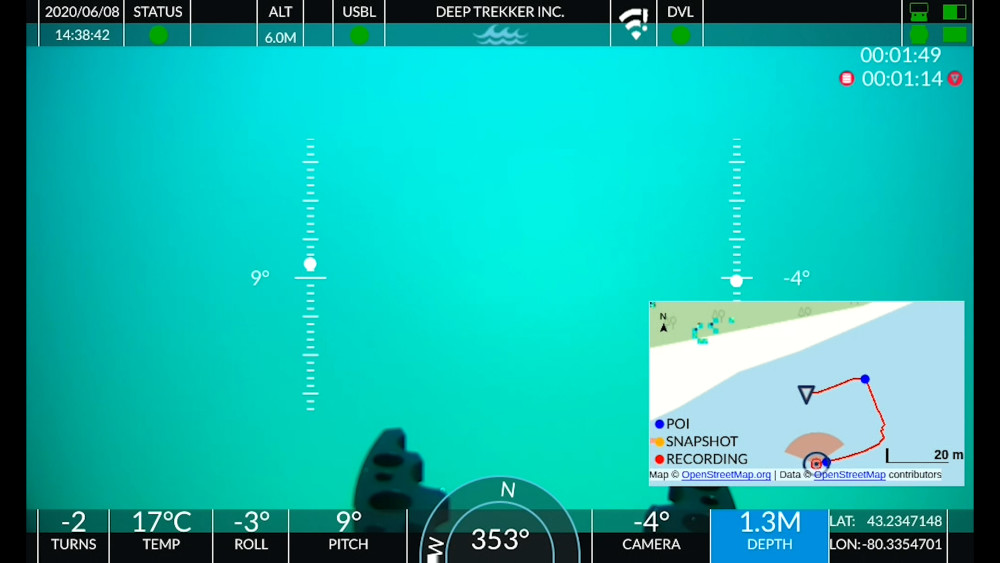Home › Forums › General › Financial, Tax and Insurance › Non Domiciled 15 years but now UK Taxman is hassling me?
- This topic has 10 replies, 6 voices, and was last updated 14 years, 10 months ago by
liddelljohn.
-
AuthorPosts
-
January 27, 2010 at 11:38 am #3262
liddelljohn
ParticipantI have been Non Domiciled for 15 years with no problems with UK Taxman …suddenly i am getting requests for my info and taxcodes sent to my relatives homes in UK by HMRC they have recently sent 4 different tax codes as well.
i have lived outside UK and EU for 15 years but all this activity seems related to work done for various UK based agencies in 2008 …..I cannot get any sensible answer from anyone at the agencies account depts about this and am not in UK until April to speak to HMRC any one got a clue what is going on? and what my response to HMRC should be .January 27, 2010 at 1:03 pm #26181baglimit
Participantnot sure if this is connected, but could well be the reason. from an australian perspective.
http://www.ato.gov.au/corporate/content.asp?doc=/content/00161107.htm
Tax information exchange agreements – overview
Overview
The Organisation for Economic Cooperation and Development (OECD) has developed a process that enables certain non-OECD offshore financial centre jurisdictions to commit to eliminating harmful international tax avoidance and evasion practices. These jurisdictions can do this by committing to a program of exchange of information agreements with OECD member countries.The OECD member countries and committed jurisdictions are collectively known as ‘participating partners’. There are a number of non-OECD offshore financial centre jurisdictions committed to taxation information exchange agreements (TIEA).
The agreements aim to establish effective information exchange and improve transparency of taxpayers’ financial arrangements/transactions for tax purposes. The agreements also provide important momentum to achieve the aims of the OECD’s harmful tax practices initiative.
There are many financial transactions undertaken for sound commercial and legitimate tax planning reasons. However, current indications are that financial transactions made in non-OECD offshore financial centre jurisdictions are a real and ongoing risk to Australian revenue. The lack of transparency, accountability and cooperation associated with these harmful tax practice transactions support international tax avoidance and evasion.
Australia has already signed a number of TIEAs and is in advanced negotiations with a number of other offshore financial centre jurisdictions.
What is a taxation information exchange agreement?
The TIEA outlines the obligation between Australia and the non-OECD participating partner to help each other by exchanging correct tax information relevant to the administration and enforcement of their respective domestic tax laws (civil and criminal). Information may only be provided on request – that is, a jurisdiction is not obliged to provide information it has not been asked for by the other jurisdiction.The TIEA differs from a comprehensive international tax agreement (also known as tax treaty or double tax agreement) as it does not contain any provisions concerning the allocation of taxing rights over income.
TIEAs also differ from the exchange of information article under the traditional international tax agreements in two ways:
TIEAs are broader than international tax agreements as they cover all taxes administered by the Commissioner of Taxation and they cover criminal and civil tax matters, and
they are narrower in that the information exchanged can only relate to a specific investigation occurring at the time – the information exchange article under the traditional international tax agreements allows for specific, spontaneous and automatic exchange of information.
What do TIEAs aim to do?
Offshore tax evasion undermines the fairness and integrity of Australia’s tax system. Furthermore, in an age of globalisation, the willingness of other governments to share information is an important element in the enforcement of domestic tax laws.TIEAs provide broad benefits for the international financial community as well as specific benefits for the relevant offshore financial jurisdiction and Australia.
At an international level, TIEAs will:
maintain higher standards for the collection of taxpayer and accounting information, promoting transparency and good governance
increase financial sector stability as well as combating criminal activity
enhance the jurisdiction’s reputation as a legitimate offshore financial centre, and
assist integration of the offshore financial centre jurisdiction into the international financial system and global community.
For Australia, TIEAs will:protect Australia’s revenue base by providing access to necessary offshore information and improving the integrity of the tax system
protect compliant businesses and individuals from unfair tax competition from those who evade their tax obligations, and
provide an important deterrent to taxpayers considering entering into offshore arrangements to avoid or evade tax.January 27, 2010 at 1:07 pm #26182James McLauchlan
ParticipantAbout 7 years back I was living in Thailand. Like you, I had been living overseas as an ex-pat for many years.
One day, out of the blue, in the post (to my Thai PO Box address) I received a £100.00 fine from the HMRC for not submitting a UK tax return.
This action may have been triggered by me working for a UK based agency in areas of the world other than the UK.From Thailand I called the UK HMRC office that issued the fine on the phone and advised them that I had been expatriate for years, did not currently reside in the UK and had no intention of doing so.
The response was to quash the fine there and then and that was it. I was also advised that I did not need to submit a tax return and received an apology for the inconvenience caused. I asked if I needed to follow up in writing and was advised it was not required. They never bothered me again.
Towards the end of the call I was requested to advise HMRC in future, should my circumstances change, and I move back to the UK. To this day moving back to the UK is something I have not done nor plan to do.
If I were you I would give the issuing office a call and speak with them about it. Based on your location and status they’ll probably bin the idea and strike you off the system. Also advise them that should they wish to contact you again they write to your overseas residential address. Make sure when you visit the UK or otherwise that the address you give anyone, for any reason, is not a UK address.
Good luck and please advise on the outcome .
January 27, 2010 at 5:19 pm #26183liddelljohn
Participanttalking to my brother, my dad and my ex wife I have received 3 different taxcodes from 3 different Tax offices’s at 3 different addresses weird…2 of which i have never ever stayed .I have read in the Uk papers online that there is some massive cockup with tax code letters at the present that most are wrong codes for UK people ,I called one of the tax offices and they said it was computer generated and not to worry…but I do worry. Some of the work i have done about 30% is in the UK sector ,but i fly in , only spent 86 days in UK all 2008 and get paid in Singapore.Spoke to Tax consultant in Singers also and they said the UK cannot touch me .My Dads accountant also said to ignore them !!!!
Liddelljohn
January 27, 2010 at 5:35 pm #26184James McLauchlan
Participant,but i fly in , only spent 86 days in UK all 2008 and get paid in Singapore.Spoke to Tax consultant in Singers also and they said the UK cannot touch me .My Dads accountant also said to ignore them !!!!
Liddelljohn
As far as your ex-pat days allowed in the UK are concerned (from recollection 90 days a year), once you are outside the 12 mile limit you are no longer in the UK. You may pick up a day transiting in and out through the UK mainland but the bulk of your time is spent in international waters… even though it may be in the UK sector of the North sea. In your case I would not be unduly worried that you may lose your ex-pat status by working in the UK sector and therefore be liable for UK tax.
January 28, 2010 at 11:35 am #26185James McLauchlan
ParticipantPlease let us know what the final outcome is.
best regards
James McJanuary 28, 2010 at 3:02 pm #26186Anonymous
GuestWhile as a Seafarer you are considered outside the UK after the 12 mile limit. Is it not the case for British expat’s that the Revenue class the UK continental shelve as ‘inside’ the UK for tax purposes.
This prevents lads working on UK sector rigs/platforms for example, living abroad and being tax free.
January 29, 2010 at 8:59 am #26187Anonymous
GuestThe source of income is a factor also. If your getting paid from the UK (a UK based agency for example) then you will be liable for UK tax while working on the UK continental shelf as an Expat… as I understand it.
However you have a tax allowance (your tax code multiplied by 10) and you will only pay tax after this amount has been earned. Obviously if you have worked just a couple of weeks in the UK sector, then the tax liability wouldn’t be much, but if you worked a couple of months. Then it could be a few quid.
Ignore the Revenue at your peril… call them and sort it out.
February 21, 2010 at 11:23 am #26188February 21, 2010 at 12:50 pm #26189Robert Branch
ParticipantIm not an expert on UK tax but I can strongly advise you,if you are living outside of the UK permanently to ignore the Inland Revenue…thats just what I would do..
February 21, 2010 at 4:57 pm #26190liddelljohn
ParticipantThe source of income is a factor also. If your getting paid from the UK (a UK based agency for example) then you will be liable for UK tax while working on the UK continental shelf as an Expat… as I understand it.
However you have a tax allowance (your tax code multiplied by 10) and you will only pay tax after this amount has been earned. Obviously if you have worked just a couple of weeks in the UK sector, then the tax liability wouldn’t be much, but if you worked a couple of months. Then it could be a few quid.
Ignore the Revenue at your peril… call them and sort it out.
I only worked 9 days in UK shelf waters out of 154 days total worked last year,mostly I was off Icland, faeroe ,mid atlantic or middle east the rest of the time in UK was family visits and holiday or transit…the TAX man is fishing , I am having a chat with HMRCi in March when i next visit UK .
the recent Legal case judgement mentioned in this thread is worrying if one owns any assets in UK , or is it more fishing by HMRC , I have a friend who is non domiciled for Tax and he earns huge sums as an freelance Automobile stylist but he owns many houses in UK and a big car collection so he is very worried by this case .he is taking advice and i will post any info i get as he will share with me .
-
AuthorPosts
- You must be logged in to reply to this topic.



